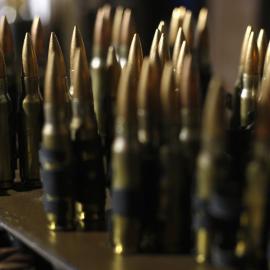To the Editor:
Jonathan Schell and Igor Ivanov make the same point: deployment of a national missile defense system (NMD) would be destabilizing because it would promote a new round of nuclear proliferation and deployment worldwide ("The Folly of Arms Control" and "The Missile-Defense Mistake," September/October 2000). Although this conjecture may be true, it is just as likely that NMD would have the opposite effect. A stable world may be one in which the United States can act to secure peace without the fear of a nuclear attack.
Schell and Ivanov's concern that NMD would promote new proliferation is also rife with curious speculation. Since western Europe has not shown an inclination to spend more than an aggregate one percent of GDP on defense, why would a U.S. defense prompt more significant spending, especially if this defense gives the United States flexibility in neutralizing hostile gestures directed at Europe by rogue states? Similarly, how would Russia mount a nuclear buildup when it cannot meet conventional arms expenditures today?
If, by the way, NMD is not feasible, as Schell suggests, then the Chinese have nothing to worry about. If it is feasible, particularly during boost phase when missiles are slow and hot, then deterrence is enhanced, since the Chinese can't possibly know which of their missiles can penetrate our defenses.
Like Schell, I believe it would be desirable to eliminate all weapons of mass destruction. But since that may be the most romantic idea of all, NMD may turn out to be a reasonable way to achieve the goal he proposes. Moving from a world where civilian populations are held hostage to nuclear incineration to a world in which the nuclear threat is reduced is, to me, both moral and stabilizing.
Herb London
President, Hudson Institute
